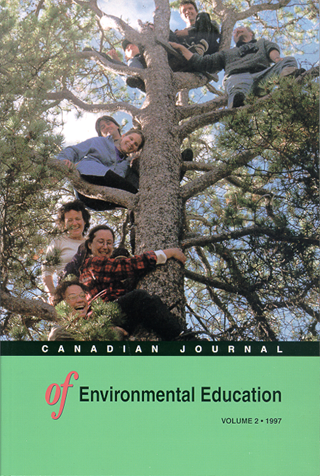Alternatives to National Standards for Environmental Education: Process-Based Quality Assessment
Abstract
Stripped from the rhetoric, the national standards debate in the Environmental Communicator reveals essential disagreements on "the" goals and objectives of environmental education. These disagreements reflect different positions as to what environmental education is to expose learners and what the result should be. Basically, they represent different world views about the roles of both science and education in society. This contribution discusses these different world views, questions some of the arguments put forward by proponents of national standards for environmental education in the United States, and lastly, argues for an alternative form of quality assessment in environmental education which is process-based instead of product- or outcome-based. The authors conclude that environmental education should be a learning process with four dimensions in that it seeks to enable participants to construct, transform, critique, and emancipate their world in an existential way. Working within these four dimensions is incompatible with the idea of setting national standards for environmental education. Instead of focusing on (pre)determining the content and outcome of environmental education, the debate should focus on developing learning enhancement criteria for environmental education that focus on these four dimensions by utilizing teachers¹, students¹ and the school community¹s own knowledge, ideas, and concerns.Downloads
Published
1997-01-01
Issue
Section
Articles


